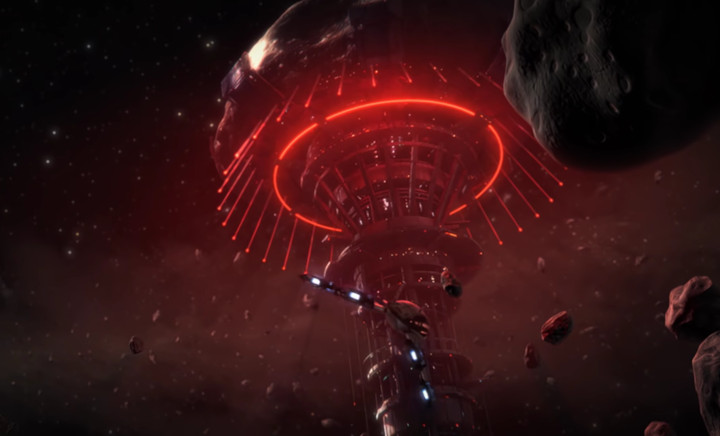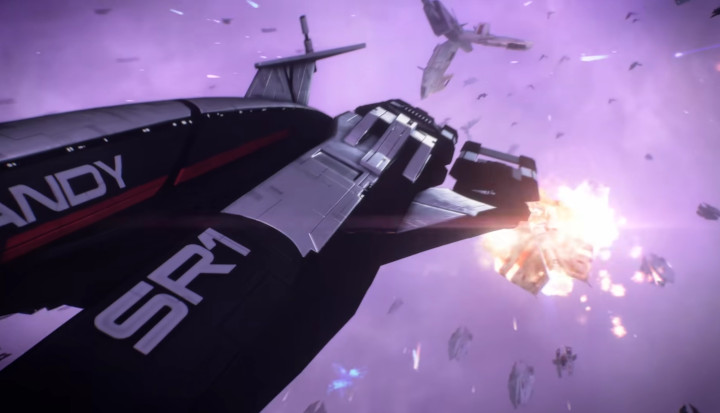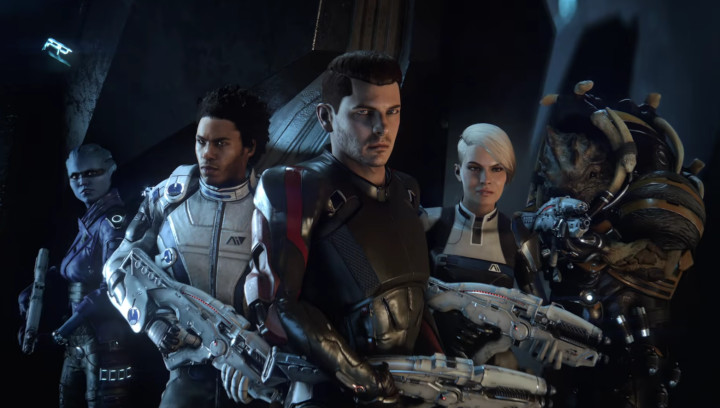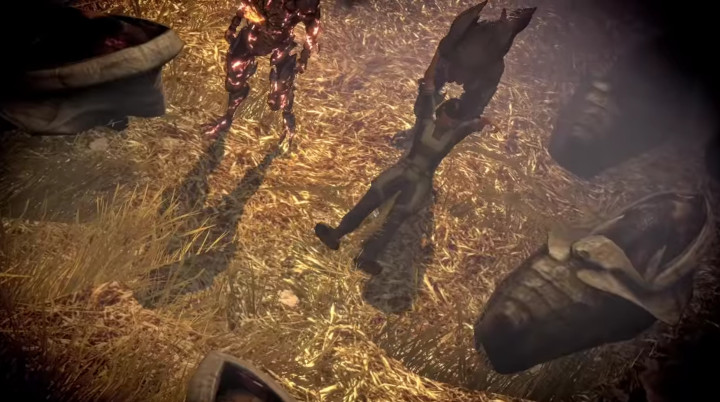
Mass Effect is a series of video games that takes place in a galaxy of connectivity and togetherness.
Stepping into the role of Commander Shepherd (and Pathfinder Ryder in Mass Effect: Andromeda), you navigate galactic politics with diverse species, recruit allies from many backgrounds to save the galaxy, and create emotional attachments with the charters you meet along the way. Each species has a long and diverse history with nuanced cultures, challenges, and perspectives. As the player, you are thrown into a large world of connection — friends, enemies, lovers, oppressors, oppressed, family, rivals — and all the intricacies that encapsulate a social and connected life.
But what does Mass Effect become when all of those people and histories and cultures and interactions are stripped away? We are now exploring a galaxy, not of connectivity and togetherness, but of the inverse: loneliness. And within the Mass Effect series, there are small, tragic, striking, and controversial moments in which this stripping away does occur.
In Mass Effect 3, the trilogy ends with a choice that results in making the universe much smaller. In order to stop the apocalyptic, genocidal threat coming from beyond the galaxy (the Reapers), you must also destroy much of the technology that makes the world of Mass Effect possible.
Most impactful is the necessary destruction of the Mass Effect relays — space stations that make interstellar travel possible. Without them, the post-Reaper world of Mass Effect is implied to be thrown into a dark age in which all of the species we’ve come to love — Turian, Asari, Krogan, Salarian, Quarian, Hanar, Drell, Elcor, Volus, Batarian, Human, and more — are, instantly and without warning, stranded from one another, forever relegated to a life surrounded by whatever they were surrounded by in that moment. There is no longer anywhere to explore. There are no more galactic quests. There are no other cultures to interact with. Where once there was much, now there is little. You’ve saved the galaxy and you’ve destroyed everything you’ve come to love. This is how the Mass Effect trilogy ends.

Not all hope is lost. The next entry in the series (though taking place earlier in the canon’s timeline), Mass Effect: Andromeda, follows many of these same Milky Way species as they set out to establish a new home in the Andromeda galaxy. Despite leaving the comfort of what they know, a sense of optimism pervades in the would-be explorers and home-builders.
But they are greeted with much difficulty; the planets they thought habitable are not, an inexplicable space-phenomenon makes travel deadly, hostile aliens (the Kett) seek to quash the interlopers at the proverbial beachhead, and the Milky Way travelers begin to fray and divide into rival factions.
In the beginning, Ryder (the protagonist and player character) knows little of this. They didn’t expect that everything could have gone so wrong.
Ryder reaches the Nexus, the center of the new galactic civilization, expecting to be greeted by a welcoming party of dignitaries and influential people. This does not happen. Instead, they arrive to an empty corner of the station that by all accounts ought to be teeming with life.
Inadvertently, they surprise a janitor going about his solitary work. He tells Ryder that they and their comrades are among the first to arrive; the few people aboard the Nexus assume that all the other travelers are dead or missing. It turns out that the Nexus, originally meant to be a beacon of the newly established community, is actually a hopelessly stranded hunk of metal. You leave the Nexus to embark on your quest; you must work to re-create a home and it will not be easy.
The Mass Effect trilogy ends with loneliness, and Mass Effect: Andromeda begins with it — your role is to claw your way out.

Both of the things I’ve mentioned — the ending of Mass Effect 3 and Mass Effect: Andromeda as a whole — are considered low points in the series. You can find all kinds of fair criticism pointed at them. However, I would like to contend that they also try something new and refreshing by flipping the core theme of the series on its head to explore the concept of loneliness.
These are macro-level, space-opera takes on the theme of loneliness, but Mass Effect also tackles smaller moments of personal difficulty.
In the original Mass Effect, you defeat the vanguard of the Reaper threat, and with the taste of victory, you set out to prepare the galaxy for the larger Reaper threat to come…
And then you die in a surprise attack.
And your corpse is flung into the vacuum of space.
And you land on an icy, desolate planet where your lifeless form is destined to stay forever.
By a twist of fate, you are found by a fringe political organization called Cerberus, and their Project Lazarus program spares no expense to bring you back from the dead. You’ve heard of Cerberus, though, and you know that you aren’t in good company anymore. According to the Mass Effect 2 codex:
Throughout the 2160s and 2170s, alleged Cerberus agents assassinated politicians, sabotaged starships bearing eezo, and conducted nightmarish experiments on aliens and humans. Denounced as human-supremacist, Cerberus calls itself human-survivalist.
But only Cerberus is taking abductions of human colonists seriously and that cause, at least, is just. So this is your quest and you have to recruit a team to defeat these “Collectors.”

You are told that the team members you once trusted — those who defeated the Reaper vanguard — have gone their separate ways. (You have been dead for two years, did you expect them to wait for you?) They have set out on their own quests and the “good old days” with you are behind them.
Besides all that, what would they say if they learned you’re working for Cerberus? For the time being, you are stuck with a group of human-supremacists you do not trust.
Just as in Mass Effect: Andromeda, Mass Effect 2 requires you to build community where there is none.
Later in Mass Effect 2, Commander Shephard’s crew is growing with people who are good and trustworthy — even the people on Cerberus’s payroll are starting to come around. Shepherd leaves the Normandy on a mission and takes the rest of the fighting men and women along. Nothing particularly strange about that.
However, the Collectors use this as an opportunity to attack the defenseless vessel and its remaining crew. In this moment, the player assumes the role of Jeff “Joker” Moreau, the pilot of the ship. He does not have Shephard and the others on hand to protect him; fighting is not an option. Also, Joker has brittle bone disease; even fleeing is a difficult task. At the player’s direction, Joker limps through the ship and struggles through tight spaces to elude the notice of the Collectors and save the ship.
As Shephard, you’ve likely grown used to having a myriad of weapons and capable squadmates to vanquish foes and assert your will. As Joker, all of that — plus an able body, a privilege that most healthy people take for granted — is stripped away from the player. This feeling is more like powerlessness than loneliness, but when agency is lost, one may come to realize how much we lean on those we trust and care for.
Though the Mass Effect saga tells a galaxy-spanning story, it shines in the personal relationships you develop with fully realized and complicated characters. The Mass Effect 3: Citadel DLC was a great example of optimistic revelry in the presence of these relationships.
The moments I have outlined here are reflections of the lonely absence of those things. But even so, they ultimately have the same message: We all strive to be together with people we love.